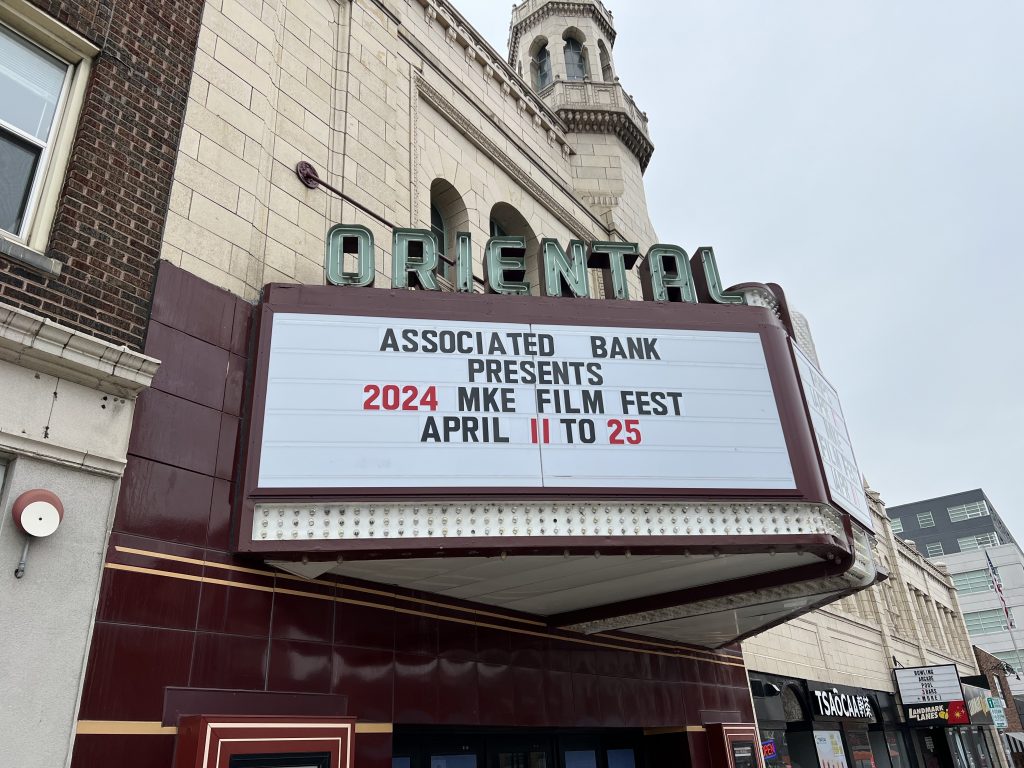Milwaukee Film Blasted For Funding Changes
Prominent filmmakers cite past support and criticize reduced funding for local artists.
Milwaukee Film is now facing another controversy.
The organization announced it will end its youth education and artist mentoring programs, saying the decision allows it “redouble” its efforts at what it does best: running the film festival and presenting films at the Oriental and Downer theaters, the theaters it operates and manages, as Urban Milwaukee reported.
This is a huge blow to local filmmakers. The program to support local filmmakers began in 2015 and by 2019 had donated more than $650,000 in cash and production services to 40 jury-selected projects. Last year, 11 total film projects received over $100,000 in cash as well as sponsor-donated production resources.
The decision to end this funding may be partly blamed on the loss of a key funder, but also seems to reflect different priorities: it comes just months after the financially challenged film festival expanded, taking over operation of the Downer Theater.
“I was struck by the language you used” saying the filmmaker grants “are not part of the ‘core’ purpose,” wrote Dick Blau, an emeritus professor and longtime chair of the UW-Milwaukee Film Department, in an open letter to the festival that was shared with Urban Milwaukee. “You have abandoned a commitment to develop Milwaukee as a producer of films and instead defined it as a consumer of work made elsewhere by others.”
“The new MKE Film mission may look fine on the surface, but it is hollow to the core,” Blau charged. “With deep regret, I am resigning as a member of MKE Film.”
Other critics included noted filmmaker Carol Brandt, UW-Milwaukee Film graduate whose work has been presented at film festivals across the globe. A grant from Milwaukee Film “helped me get my career started,” she told Urban Milwaukee. “Milwaukee Film was a great institution, and still can be, if we focus on our local filmmakers and artists, because they are the ones that truly make this festival thrive and feel exciting. Taking that away from our aspiring artists makes no sense.”
Filmmaker Kyle Arpke, another UW-Milwaukee film grad, who runs Silver City Productions, told Urban Milwaukee his current documentary project is the most funded project in the history of Milwaukee Film’s grants to artists. Ending this program is “a major loss for local filmmakers because there isn’t anything else like this in the city,” he said.
Director and script writer Andrew Swant, whose many films include William Shatner’s Gonzo Ballet and The Jeffrey Dahmer Files, told Urban Milwaukee that five of his films could not have been completed without support from Milwaukee Film. “Talent retention is a HUGE problem here in Milwaukee,” he wrote via email. “The UWM Film Department turns out so many talented young people, but many leave fairly quickly because there is little support here for filmmakers. The support of Milwaukee Film over the years has been one of the reasons many local filmmakers have stayed in Milwaukee.”
Similar sentiments were expressed by award-winning film director Chris James Thompson. “The endless support of MKE Film over the years has allowed me to stay and make films in Milwaukee that are seen in theaters and on screens all around the world,” he told Urban Milwaukee.
Filmmaker Laj Pershad Waghray, a local filmmaker who runs Red Crane Films and was a Milwaukee Film grant recipient, said she was “deeply troubled” by the festival’s decision. “Milwaukee is already a difficult place for filmmakers to thrive. Filmmakers here face constant challenges due to limited funding and a lack of institutional backing.”
Other critics of the decision include Ben Balcom, a filmmaker and UW-Milwaukee film professor, and Kim Miller, a video and performing artist who is a professor at Milwaukee Institute of Art & Design.
All of the critics except Miller and Waghray were UW-Milwaukee film department grads or professors, as was Jonathan Jackson, a graduate who was the founder and longtime artistic director of Milwaukee Film. It was under his direction the grant program for filmmakers was started. He left Milwaukee Film under mysterious circumstances in January, and was presumably let go for overspending and running up a deficit, as Urban Milwaukee reported. Also dismissed some months before this was Geraud Blanks, Milwaukee Film chief innovation officer and co-founder of its Black Lens program. Sources have told Urban Milwaukee that both signed a non-disclosure agreement as part of the exit deal. Even so their departures and the festival’s financial problems left the organization struggling to present a positive story.
Jackson’s replacement, Anne Reed, is an attorney who ran the Wisconsin Humane Society for 13 years. Under her leadership and that of board chair Susan F. Mikulay, who was quoted in the press release announcing the end of grants to filmmakers, the organization’s priorities seems to have changed, adding the Downer while also ending education grants.
Another factor at work was a loss of support from the Brico Fund, which was long the main funder of grants to filmmakers. “The artist services program was not receiving any designated foundation funding when our changes were made,” Reed told Urban Milwaukee. A spokesperson for the Brico Fund told Urban Milwaukee that the organization decided to end its funding of the filmmaker grant program, but still supports the film festival, though at a lower level of funding for general operations. 2022 was the last year the Brico Fund supported the filmmaker grant program.
Even so its support was replaced for the 2023 filmmaker awards with funding from a list of groups, including the relatively new Ruth Foundation for the Arts. But that was under Jackson’s leadership. Milwaukee Film’s current leaders have now decided to drop a program that ran for nine years, was a signature part of the festival and made Milwaukee a much more welcoming place for filmmakers.
If you think stories like this are important, become a member of Urban Milwaukee and help support real, independent journalism. Plus you get some cool added benefits.
Movies
-
Milwaukee Film Festival Returns in April
 Mar 27th, 2024 by Sophie Bolich
Mar 27th, 2024 by Sophie Bolich
-
Nina Simone’s Summer of Soul
 Nov 29th, 2022 by John Sieger
Nov 29th, 2022 by John Sieger
-
The Surprise Pick for Best Picture
 Mar 22nd, 2022 by Dominique Paul Noth
Mar 22nd, 2022 by Dominique Paul Noth
Murphy's Law
-
Is Milorganite Making People Sick?
 Sep 4th, 2024 by Bruce Murphy
Sep 4th, 2024 by Bruce Murphy
-
Bradley Trustee a Gun Rights ‘Superstar’
 Aug 29th, 2024 by Bruce Murphy
Aug 29th, 2024 by Bruce Murphy
-
Remembering Cecilia Gilbert
 Aug 27th, 2024 by Bruce Murphy
Aug 27th, 2024 by Bruce Murphy























It will be interesting to see how many MKE Film members agree with its latest changes. I have been a member for the last 8 years but I will not be renewing my membership.